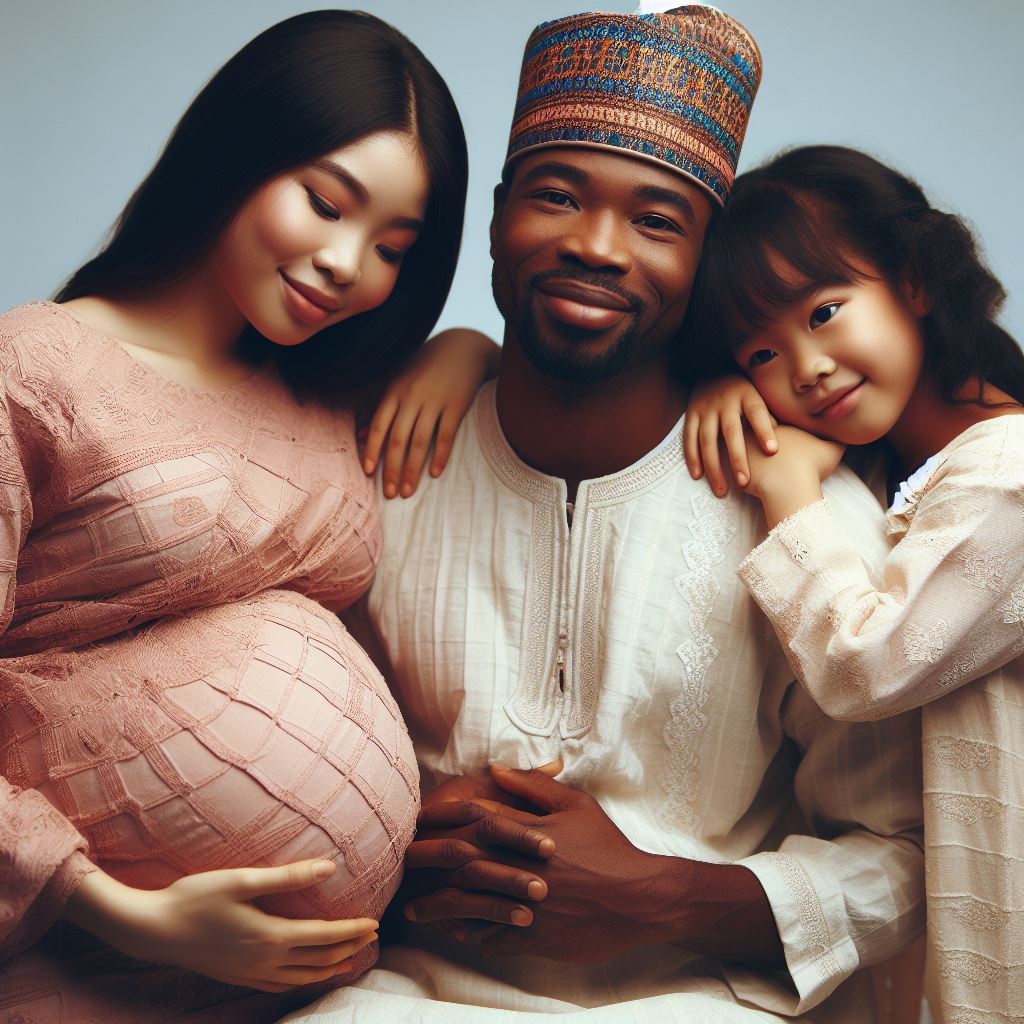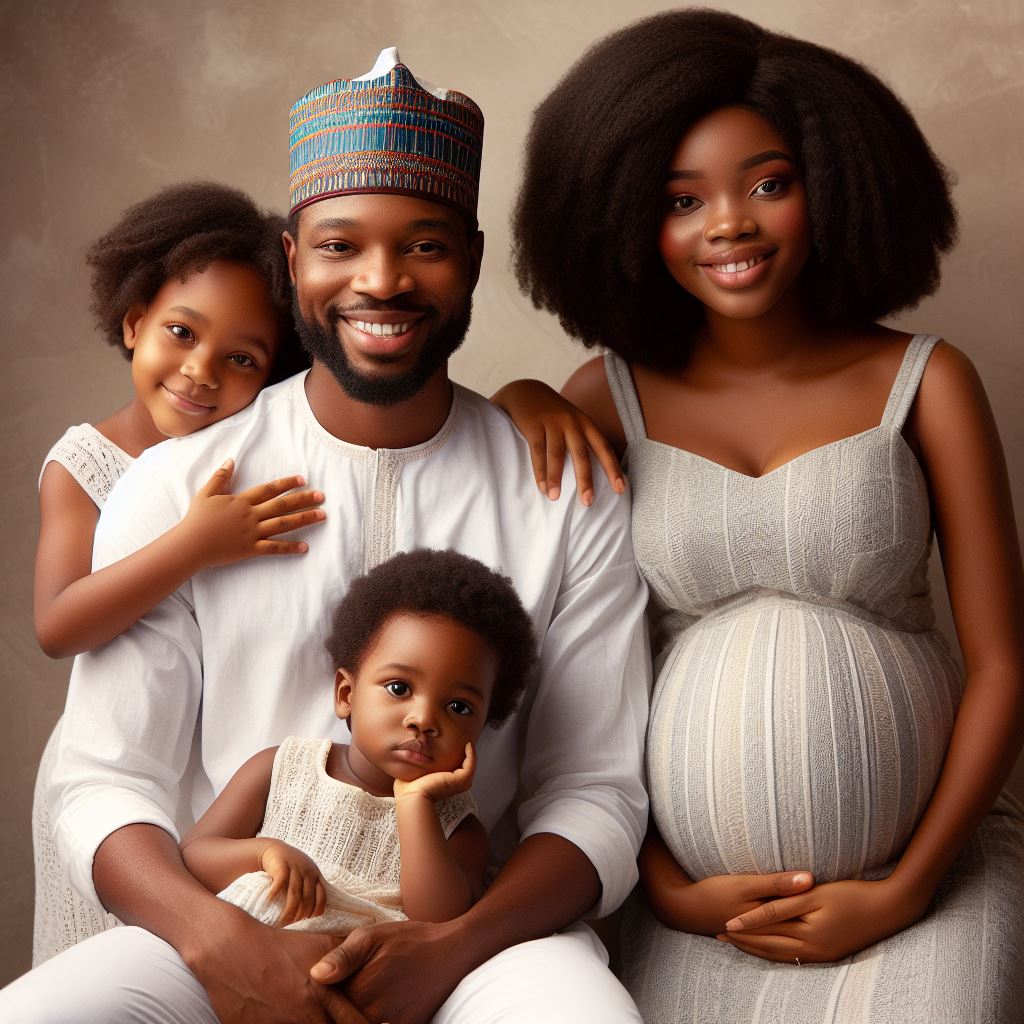Introduction
Gender roles in traditional Nigerian society have long dictated the expectations and responsibilities of men and women.
Men are traditionally seen as providers and protectors, while women are expected to take care of the household and children.
However, with the changing times, modern parenting in Nigeria is challenging these traditional gender roles.
Modern parenting in Nigeria refers to a shift from the traditional mindset, where both parents take equal responsibility in raising their children.
This concept recognizes that gender should not limit the roles and responsibilities of parents.
Balancing gender roles in parenting is crucial for the healthy development of children.
When both parents actively participate in child-rearing, they provide a diverse range of skills, perspectives, and experiences.
This creates a more nurturing and enriching environment for the child.
Allowing men to actively participate in parenting enables them to bond with their children and develop a strong emotional connection.
It also breaks the stereotype that men are only responsible for providing financially, encouraging them to play a more active role in the household.
For women, balancing gender roles in parenting gives them more opportunities to pursue their careers and personal interests.
It empowers them to break free from the societal expectations that confine them to traditional domestic roles.
Moreover, when parents share household and child-rearing responsibilities, it promotes gender equality within the family.
Children grow up seeing both parents as equal partners, which challenges ingrained gender stereotypes and promotes respect and understanding between genders.
In fact, modern parenting in Nigeria challenges the traditional gender roles by advocating for a balanced approach to parenting.
Parenting Made Just for You
Get personalized Parenting Solutions tailored to your child’s needs. Transform your parenting journey with expert guidance in 1-3 days.
Get StartedBy involving both parents actively and equally, children benefit from the diversity of skills and experiences that both fathers and mothers bring to parenting.
This promotes gender equality within the family and society at large.
Traditional Nigerian Gender Roles
Traditional gender roles in Nigerian society
In the rich tapestry of Nigerian culture, traditional gender roles have long played a significant part in shaping societal expectations.
The intricate dance between men and women has been woven into the fabric of everyday life, extending its influence to the realm of parenting.
Understanding these traditional roles is crucial when exploring the evolution of modern parenting in Nigeria.
Historically, Nigerian society has assigned distinct responsibilities to men and women within the family structure.
Men were traditionally seen as the primary providers, tasked with the responsibility of ensuring the financial stability of the household.
Women, on the other hand, were entrusted with nurturing and homemaking duties.
This division of labor was deeply ingrained, shaping expectations for generations.
In the context of parenting, these traditional gender roles extended to specific responsibilities.
Fathers were expected to be the stern disciplinarians, imparting wisdom and guidance to their children.
Mothers, meanwhile, were the nurturing forces, providing emotional support and fostering a sense of cultural identity.
While these roles were rooted in cultural norms, they began to undergo transformation as societal dynamics evolved.
Expectations for men and women in terms of parenting responsibilities
Fast forward to the present, and the landscape of parenting in Nigeria is undergoing a profound shift.
Unveil the Perfect Name that Tells Your Family's Story
Let us help you find a name that embodies your family's values, traditions, and dreams. Our personalized consultation weaves cultural insights to create a name that's uniquely yours.
Get StartedModern couples are challenging traditional gender norms, seeking a more equitable distribution of parenting responsibilities.
Fathers are embracing active roles in childcare, breaking away from the archetype of distant disciplinarians.
Mothers, in turn, are pursuing careers and contributing significantly to the financial well-being of their families.
This shift is not without its challenges, as the push for gender equality clashes with deeply ingrained societal expectations.
However, it reflects a growing recognition that effective parenting requires a shared commitment from both partners.
Modern Nigerian parents are navigating uncharted waters, redefining the contours of parenthood to create a more balanced and harmonious family life.
In short, the evolution of parenting in Nigeria is a dynamic process that reflects the changing landscape of traditional gender roles.
While the past has shaped expectations, the present offers an opportunity to redefine these roles, fostering a more inclusive and collaborative approach to parenting in the diverse tapestry of Nigerian society.
Read: Exploring IVF: A Guide for Nigerians Facing Infertility
Changing Perspectives on Gender Roles
In recent years, Nigeria has witnessed a profound shift in traditional gender roles, challenging age-old norms and fostering a more inclusive society.
The evolution of gender roles is particularly evident in the realm of parenting, where a dynamic transformation is taking place.
This section explores the changing landscape of gender roles in modern Nigerian parenting, highlighting the factors contributing to this shift and the rise of gender equality and women’s empowerment movements.
How gender roles are evolving in Nigerian society
Nigerian society, deeply rooted in cultural and patriarchal norms, has traditionally assigned distinct roles to men and women within the family structure.
However, as the world evolves, so does Nigeria, and an increasing number of families are challenging these stereotypes.
Fathers are becoming more actively involved in childcare and household responsibilities, breaking away from the notion that parenting is primarily a mother’s duty.
Factors contributing to the shift in gender roles
Several factors contribute to this transformative shift.
Education plays a pivotal role, as an educated populace tends to question and challenge established norms.
With more women pursuing higher education and joining the workforce, the traditional division of labor within households is becoming obsolete.
As economic opportunities expand for both genders, the rigid boundaries of traditional gender roles are slowly eroding.
Rise of gender equality and women’s empowerment movements
The rise of gender equality and women’s empowerment movements further accelerates this paradigm shift.
Advocacy groups and NGOs are actively promoting awareness and dismantling stereotypes that hinder women’s progress.
Nigerian women are increasingly occupying leadership roles in various fields, inspiring younger generations to aspire beyond predefined gender expectations.
In the realm of parenting, couples are redefining their roles based on shared responsibilities and mutual understanding.
Fathers are acknowledging the importance of their involvement in nurturing and raising their children, fostering a healthier family dynamic.
This shift not only benefits women by alleviating their burden but also allows men to experience the joys and challenges of parenthood more fully.
As Nigeria embraces a more inclusive and progressive stance on gender roles, the evolving landscape of modern parenting serves as a testament to the nation’s commitment to equality and empowerment.
The journey is ongoing, but the momentum is unmistakable, ushering in a new era where parenting is a shared responsibility, transcending the constraints of traditional gender norms.
Read: The Role of Gender in Nigerian Child Development
Benefits of Balancing Gender Roles
When it comes to modern parenting in Nigeria, balancing gender roles brings numerous benefits:
For couples who make a conscious effort to balance the gender roles within their household, the benefits are significant.
Improved parenting dynamics
One of the primary advantages of balancing gender roles in parenting is the improved dynamics it creates within the family.
When both partners are actively involved, it enhances the overall functioning of the family unit.
Each parent brings different perspectives, strengths, and experiences to the table, leading to better decision-making and problem-solving.
Positive impact on children’s development
Moreover, this active involvement from both parents has a positive impact on the development of the children.
When children witness their mother and father sharing responsibilities, they learn that gender roles are not fixed or rigid.
This exposure helps shape their understanding of equality and respect between genders, ultimately leading to more egalitarian societies.
Equal distribution of household and childcare responsibilities
An equal distribution of household and childcare responsibilities is another significant benefit of balancing gender roles.
When both partners share the load, it prevents one person from feeling overwhelmed or overburdened.
This balance frees up time for self-care, personal growth, and relaxation, leading to happier and more fulfilled parents.
Additionally, by sharing household and childcare duties, parents set an excellent example for their children.
Sons learn that contributing to domestic chores is not solely a woman’s responsibility, while daughters grow up knowing they are not confined to traditional gender roles.
This shared responsibility fosters a sense of teamwork and cooperation within the family.
Furthermore, balancing gender roles promotes a healthy work-life balance for both parents.
It allows women to pursue their career aspirations without sacrificing their role as mothers.
Simultaneously, men are encouraged to take an active role in their children’s upbringing.
This flexibility within gender roles benefits the well-being of both parents, resulting in a more harmonious and fulfilling family life.
In essence, there are numerous benefits to balancing gender roles in modern parenting in Nigeria.
Improved parenting dynamics, positive child development, and equal distribution of responsibilities all contribute to a healthier and more balanced family life.
By actively striving for gender equality within the household, parents nourish a more equitable society for future generations.
Read: Infertility and Stress: Management Techniques for Couples
Challenges in Balancing Gender Roles
In the vibrant tapestry of Nigeria’s cultural landscape, the quest for gender role balance in modern parenting encounters its share of challenges.
While progress is evident, the journey is far from smooth, marked by hurdles that demand attention and resilience.
Cultural and Societal Resistance to Changing Gender Roles
Nigeria’s rich cultural heritage often clashes with the winds of change blowing through gender norms.
Deeply ingrained beliefs about traditional gender roles can present formidable barriers.
The expectation that women should predominantly focus on nurturing and men on providing can stifle individual aspirations.
Breaking these molds requires navigating through generations of entrenched customs and beliefs, a process fraught with resistance and often met with skepticism.
Role Conflict and Negotiation within Relationships
Within the intimate confines of relationships, balancing gender roles can spark conflict.
As partners grapple with evolving expectations, negotiating responsibilities becomes an intricate dance.
Traditional expectations may clash with the desire for equality, leading to misunderstandings and power struggles.
It demands a delicate equilibrium where communication and compromise become the tools for dismantling stereotypes and building a partnership founded on shared responsibilities.
External Pressures and Judgment from Others
The external gaze, whether from extended family, friends, or society at large, casts a formidable shadow on modern parenting.
The pressure to conform to established norms can be relentless.
Judgments on parenting choices, especially those deviating from traditional roles, create a battlefield of opinions.
Weathering these external pressures requires a steadfast commitment to the belief that a balanced partnership is not only desirable but essential for the well-being of the family unit.
In a nutshell, the journey towards balanced gender roles in modern Nigerian parenting is riddled with challenges.
Navigating the cultural undercurrents, negotiating within relationships, and confronting external judgments demand courage and conviction.
Yet, it is a journey worth taking, for in dismantling the barriers, we pave the way for a more equitable and harmonious future, where parenting becomes a shared responsibility rather than a predetermined role based on gender.
Read: Male Infertility: Understanding and Solutions in Nigeria

Strategies for Balancing Gender Roles
In the dynamic landscape of modern Nigerian parenting, achieving a harmonious balance in gender roles is not just an aspiration but a necessity for fostering healthy family dynamics.
To navigate this terrain successfully, couples can employ a set of effective strategies.
Open communication and shared decision-making between partners
Open communication and shared decision-making stand as the cornerstone of equitable partnerships.
Cultivating an environment where partners feel comfortable expressing their thoughts and concerns lays the groundwork for mutual understanding.
Regular discussions about parenting philosophies, career aspirations, and household goals enable couples to align their visions, promoting a unified approach to gender roles.
Equal distribution of household chores and parenting responsibilities
Equal distribution of household chores and parenting responsibilities is a pivotal strategy in achieving balance.
Gone are the days when domestic duties were solely a woman’s domain.
Modern parenting in Nigeria thrives on shared responsibilities, creating an environment where both partners actively contribute to the upbringing of their children.
This not only fosters a sense of teamwork but also breaks down traditional stereotypes.
Flexible work arrangements and parental leave policies
Embracing flexible work arrangements and progressive parental leave policies is paramount.
Many couples find themselves caught between the demands of the workplace and the responsibilities of parenthood.
By advocating for flexible work hours and parental leave, couples can ensure that both partners have the opportunity to actively participate in caregiving.
This not only supports a more balanced division of labor but also strengthens the bond between parent and child.
Basically, balancing gender roles in modern Nigerian parenting is achievable through intentional strategies.
Open communication, equal distribution of responsibilities, and embracing workplace flexibility are integral components of this transformative journey.
By adopting these practices, couples can forge a path towards a more egalitarian and fulfilling family life. The key lies in recognizing the shared responsibility of both partners in creating a nurturing environment for their children to thrive.
Modern Parenting Practices in Nigeria
In recent years, there has been a growing movement towards embracing gender equality in parenting practices in Nigeria.
Traditional gender roles are increasingly being challenged, allowing for a more balanced and collaborative approach to raising children.
This section explores the shift towards modern parenting in Nigeria, highlighting examples of parents who have successfully balanced their gender roles and emphasizing the importance of teamwork and collaboration in effective parenting.
Modern Parenting Practices that Embrace Gender Equality
Gone are the days when parenting was solely considered a mother’s responsibility.
Today, Nigerian parents are embracing a more egalitarian approach, recognizing the importance of shared responsibilities and equal contributions from both partners.
This shift is evident in various aspects of modern parenting practices:
- Childcare and Domestic Duties: Modern Nigerian parents understand the importance of sharing childcare and domestic duties equally. Fathers are actively involved in tasks such as feeding, bathing, and changing diapers, debunking the stereotype that these tasks are exclusively a mother’s responsibility.
- Decision-Making: In modern Nigerian households, decisions regarding the upbringing and well-being of the children are made jointly. Both parents engage in open discussions and consider each other’s opinions, fostering a sense of equality and collaboration.
- Career and Parenting: Many Nigerian parents are now finding ways to balance their careers and parental responsibilities. Both mothers and fathers are working together to navigate the challenges of career advancement while ensuring their children receive the attention and care they need.
Examples of Nigerian Parents Balancing Gender Roles Effectively
There are numerous inspiring examples of Nigerian parents who have successfully balanced their gender roles, becoming role models for others:
- The Dike Family: Mr. and Mrs. Dike are both professionals who have found a way to equally divide their parenting responsibilities. They take turns in picking up their children from school, preparing meals, and assisting with homework.
- The Ibrahim Family: Mrs. Ibrahim, a successful businesswoman, and Mr. Ibrahim, a supportive husband, actively collaborate in raising their children. They have established a routine that allows both parents to contribute equally to their children’s upbringing.
- The Okonkwo Family: Mr. Okonkwo, an accomplished lawyer, believes in the equal distribution of chores and responsibilities. He actively participates in household chores and parenting tasks, setting a positive example for his children.
Teamwork and Collaboration in Parenting
One of the crucial aspects of modern parenting practices in Nigeria is the emphasis on teamwork and collaboration. Successful Nigerian parents understand that sharing responsibilities leads to a healthier family dynamic and better outcomes for their children:
- Effective Communication: Good communication between parents is vital for effective teamwork in parenting. Regular discussions about parenting strategies, challenges, and expectations help create synergy and unity.
- Supportive Co-Parenting: Nigerian parents practice being supportive co-parents by actively assisting each other in various tasks. This includes taking turns in waking up with a baby at night, attending school events together, and showing solidarity in disciplining their children.
- Equal Opportunities: By embracing gender equality, Nigerian parents provide their children with equal opportunities to learn, grow, and explore. Sons and daughters witness their parents sharing household responsibilities and chores, breaking gender stereotypes.
All in all, modern parenting practices in Nigeria have seen a remarkable shift towards gender equality.
By embracing shared responsibilities and collaborating effectively, Nigerian parents are successfully balancing their gender roles.
Examples of such parents inspire others to adopt a similar approach, ultimately leading to healthier and happier families.
Conclusion
The journey towards balanced gender roles in modern Nigerian parenting is not just a choice but a necessity for the holistic development of our children and the advancement of our society.
We have explored the significance of breaking free from traditional stereotypes and fostering an environment where both parents contribute equally to the upbringing of their children.
Recapping the importance of balancing gender roles, we’ve seen how it promotes a healthy sense of self in children.
When they witness both parents actively participating in various aspects of their lives, they learn that there are no predefined roles based on gender.
This understanding lays the foundation for open-mindedness and adaptability, essential traits in our rapidly evolving world.
To all Nigerian parents, the call to embrace gender equality in parenting is not just a call for individual growth but a collective societal transformation.
It is an encouragement to break free from the chains of outdated norms and provide our children with an upbringing that reflects the diversity and equality we strive for in our nation.
As we navigate the uncharted waters of modern parenting, let us encourage one another to challenge stereotypes and share the responsibilities that come with raising a child.
Fathers, take an active role in nurturing and guiding your children; mothers, empower your children to dream beyond societal expectations.
Together, let’s create an environment where our sons and daughters grow up knowing that their worth is not determined by their gender.
The journey towards balanced gender roles is not solitary; it is a communal effort.
It requires a societal shift, a collective breaking of chains that bind us to the past.
Therefore, let this be a call to action for everyone – educators, policymakers, and community leaders alike.
Let us work together to dismantle stereotypes, foster equality, and create a future where every child, regardless of gender, has the opportunity to thrive.
In the end, the key to a brighter future lies in our hands.
By embracing gender equality in parenting, we are not just shaping the lives of our children but also contributing to the evolution of a more inclusive and progressive Nigerian society.



